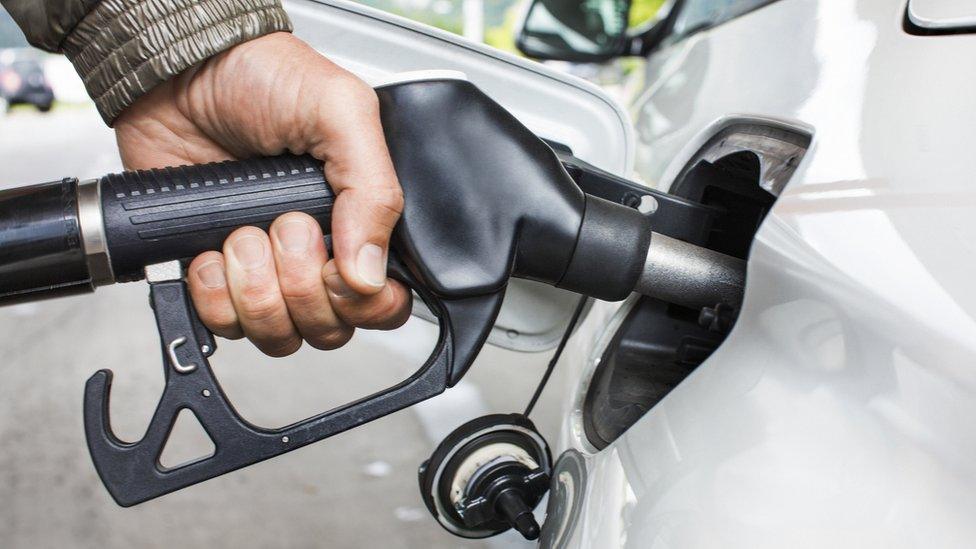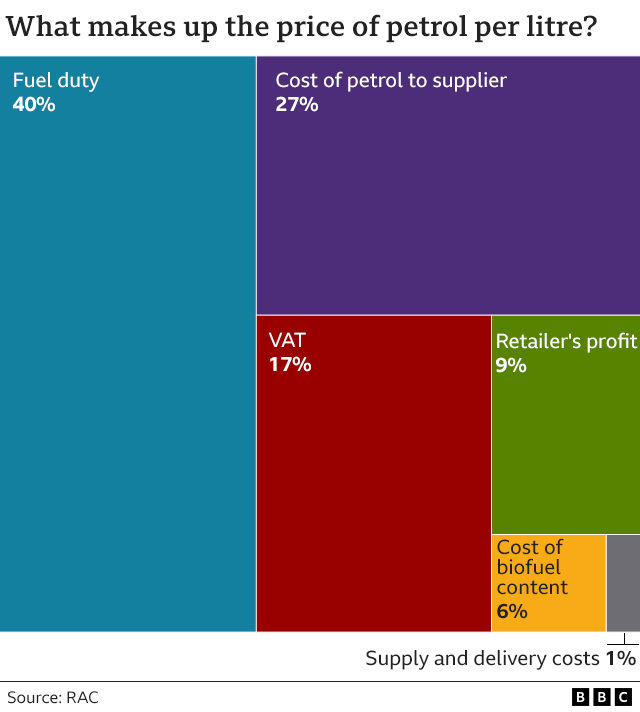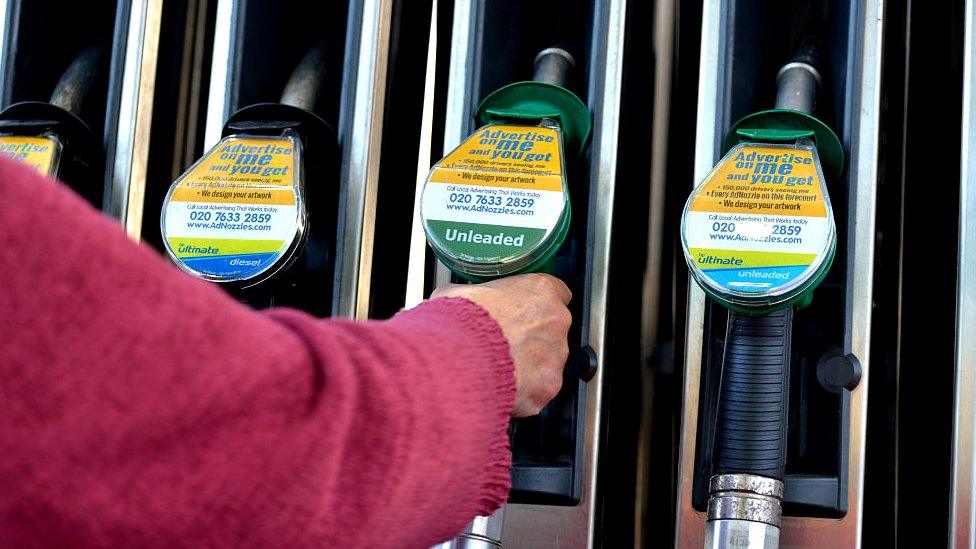Oil price falls below $100 but petrol hits new high
- Published
- comments

Motoring groups have called for fuel prices to fall as the cost of crude oil fell to its lowest level for two weeks.
The price of Brent crude - the global benchmark for prices - dropped below $100 a barrel for the first time since the start of March.
The RAC has said it is "vital" that fuel retailers start passing on falling wholesale prices to consumers.
Petrol prices hit another record high on Monday, meaning it costs more than £90 to fill a family car, the RAC said.
The average price of a litre of petrol rose to 163.71p on Monday, and diesel also hit a fresh record of 173.68p.
Oil prices soared after Russia invaded Ukraine, with the price of Brent crude oil hitting a near 14-year high at one point.
But in the past few days, the price of oil has dropped due to a number of factors, including hopes of progress in ceasefire talks between Russia and Ukraine, and also expectations that demand from China will ease as Covid cases there surge.
Brent crude fell to about $98 a barrel on Tuesday before recovering some ground.
RAC fuel spokesman Simon Williams said that although petrol prices were at record highs, drivers "should be encouraged" by the fall in oil and wholesale prices.
"It's now vital that the biggest retailers who buy fuel most often start to reflect these reductions at the pumps to give drivers a much-needed break from the pain of constantly rising prices," he added.
The AA said that the wholesale price of petrol has plummeted by 12.8p a litre since Wednesday.
Luke Bosdet from the AA said: "We should be seeing these record prices level off and start to fall away later this week. If not, MPs who are being deluged by complaints from angry constituents, need to be asking questions in Parliament.
"The government is under intense pressure from the cost of living crisis. They don't need the fuel trade to 'feather' a potential drop in pump prices."
Andrew Opie from the British Retail Consortium said supermarket retailers "understand the cost pressures" facing motorists, and will do "everything they can to offer the best value-for-money across petrol forecourts, particularly if the price of oil falls".
The Petrol Retailers Association, which represents independent forecourts, said it would expect prices to fall when fresh stock is delivered.
Gordon Balmer, the PRA's Executive Director, said forecourts bought from suppliers based on a price with one or two days' lag, or in some cases a week's lag. This means it can take a few days for wholesale prices to filter through to the pumps.
Global shifts in price
Oil prices are mainly determined by the price of crude oil and the dollar exchange rate, as agreements are made in dollars.
Russia is the third largest oil exporter and some Western countries, for example the US and Canada, decided to halt imports from the country in response to Russia's actions. It means demand for oil from other producers has increased, leading to increased prices.
The UK only imports about 6% of oil from Russia, so is not as dependent on Russia for the commodity supply as other European countries are and has said it plans to phase it out.
It is, however, affected by the global shifts in price.

On Monday, some analysts told MPs on the Treasury Committee that they expected the recent fall in the oil price to be temporary.
Nathan Piper, head of oil and gas research at financial services company Investec, said further restrictions on Russian oil exports would mean consumers "need to get ready for what could be continued increases in fuel prices."
Dr Amrita Sen, director of research at Energy Aspects, told the committee that petrol prices could rise to around £2.40 a litre. And that diesel prices of "£2.50 - even closer to £3" were "definitely in the realms of possibility".
Energy Minister Greg Hands has said the UK's transition to cleaner forms of energy production is now "an issue of national security" and not just of decarbonisation.
Related topics
- Published14 March 2022

- Published14 August 2023
